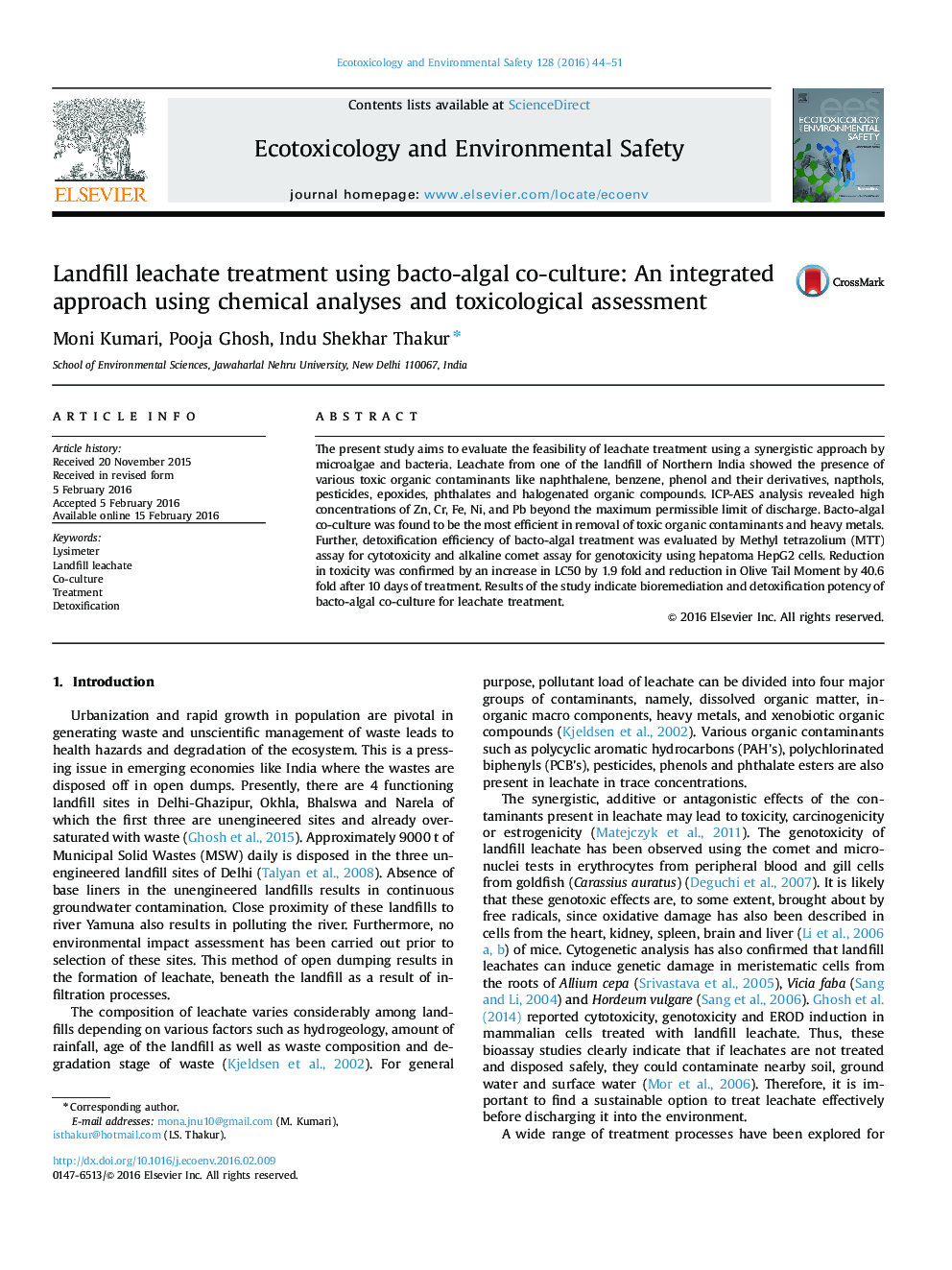| کد مقاله | کد نشریه | سال انتشار | مقاله انگلیسی | نسخه تمام متن |
|---|---|---|---|---|
| 4419353 | 1618935 | 2016 | 8 صفحه PDF | دانلود رایگان |
• Landfill leachate was treated with algae, bacteria and its co-culture.
• Degradation of contaminants was monitored using GC–MS and toxicity by bioassays.
• Bacto-algal co-culture was the most efficient in treating landfill leachate.
• Co-culture treatment also led to maximum reduction in cyto-/geno-toxicity.
The present study aims to evaluate the feasibility of leachate treatment using a synergistic approach by microalgae and bacteria. Leachate from one of the landfill of Northern India showed the presence of various toxic organic contaminants like naphthalene, benzene, phenol and their derivatives, napthols, pesticides, epoxides, phthalates and halogenated organic compounds. ICP-AES analysis revealed high concentrations of Zn, Cr, Fe, Ni, and Pb beyond the maximum permissible limit of discharge. Bacto-algal co-culture was found to be the most efficient in removal of toxic organic contaminants and heavy metals. Further, detoxification efficiency of bacto-algal treatment was evaluated by Methyl tetrazolium (MTT) assay for cytotoxicity and alkaline comet assay for genotoxicity using hepatoma HepG2 cells. Reduction in toxicity was confirmed by an increase in LC50 by 1.9 fold and reduction in Olive Tail Moment by 40.6 fold after 10 days of treatment. Results of the study indicate bioremediation and detoxification potency of bacto-algal co-culture for leachate treatment.
Journal: Ecotoxicology and Environmental Safety - Volume 128, June 2016, Pages 44–51
